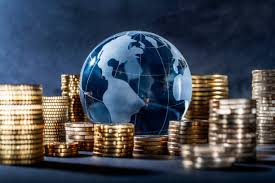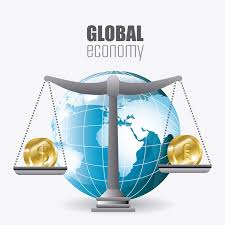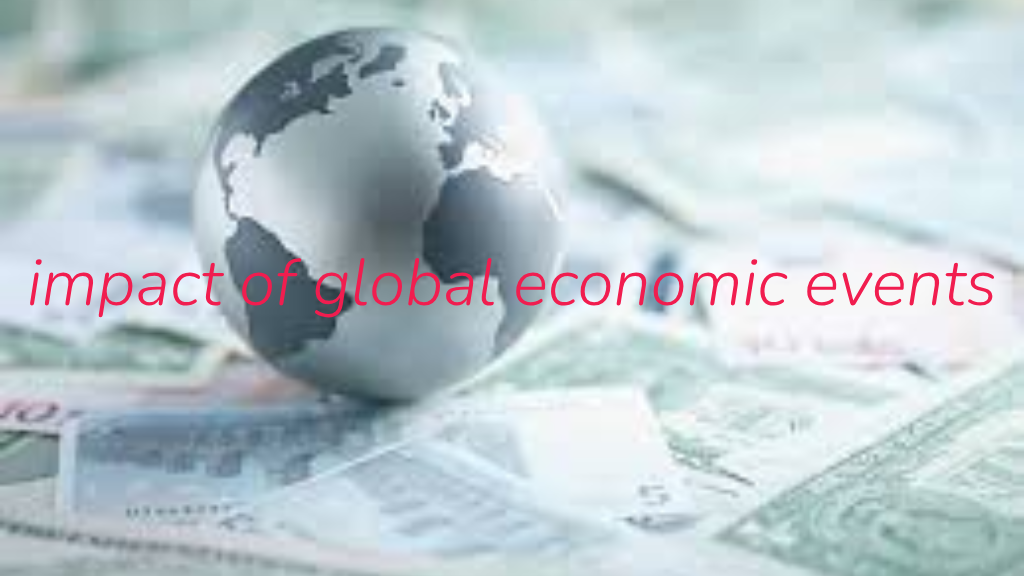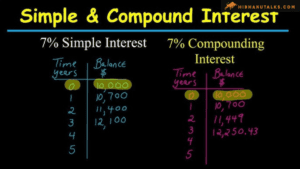
Impact of Global Events on Markets: Covid-19, Elections, etc.
Contents
- 1 impact of global economic events
- 2 Impact of Global Events on Markets: Covid-19, Elections, etc.
- 3 Frequently Asked Questions (FAQs)
- 3.1 1. How do global events affect stock market performance?
- 3.2 2. What strategies can investors use to mitigate the risks of global events?
- 3.3 3. How did the Covid-19 pandemic impact different sectors?
- 3.4 4. Can emerging markets be a good investment during global uncertainty?
- 3.5 5. How often should investors review their portfolios during global events?
- 4 impact of global economic events
- 5 stock market insights india
impact of global economic events
Impact of Global Events on Markets: Covid-19, Elections, etc.
In today’s interconnected world, global events can send shockwaves through financial markets, impacting economies, businesses, and individual investors alike. Understanding these impacts is crucial for anyone involved in the stock market, whether you’re a seasoned investor or just getting started. In this article, we’ll delve into how major global events like the Covid-19 pandemic and political elections influence financial markets, providing a comprehensive overview of their far-reaching effects.


The Role of Global Events in Market Dynamics
Global events act as catalysts for market movements, creating volatility and opportunities for investors. These events can be political, economic, environmental, or technological, each with its own unique set of impacts.
The Covid-19 Pandemic: A Case Study
Immediate Market Reactions
The Covid-19 pandemic triggered one of the most significant market crashes in history. In March 2020, global stock markets plummeted as lockdowns were imposed, businesses shuttered, and uncertainty loomed large.
Long-term Economic Consequences
The pandemic also brought about long-term economic changes, including shifts in consumer behavior, supply chain disruptions, and accelerated adoption of digital technologies. These factors reshaped industries and created new market dynamics.


Political Elections and Market Volatility
Historical Examples of Market Reactions
Political elections often cause market volatility as investors react to potential changes in policy and governance. For example, the 2016 US presidential election saw significant market fluctuations both before and after the results were announced.
Factors Influencing Market Sentiment
Market sentiment during elections is influenced by factors such as policy proposals, candidate popularity, and political stability. Investors try to anticipate the economic implications of different political outcomes.
Geopolitical Tensions and Trade Wars
Impact on Global Supply Chains
Geopolitical tensions, such as trade wars, can disrupt global supply chains, leading to increased costs and uncertainties for businesses. The US-China trade war, for instance, had widespread repercussions on global markets.
Investor Sentiment and Market Performance
Investor sentiment can be significantly affected by geopolitical events. Heightened tensions can lead to market sell-offs, while resolutions can spur rallies.


Natural Disasters and Environmental Events
Economic Disruptions
Natural disasters like hurricanes, earthquakes, and wildfires can cause immediate economic disruptions, impacting local economies and global markets. The economic toll of these events can be substantial, affecting everything from insurance companies to infrastructure projects.
Sector-Specific Impacts
Certain sectors are more vulnerable to natural disasters. For instance, the agricultural sector can suffer from droughts, while the insurance sector may face massive claims after a major disaster.
Technological Advancements and Market Transformations
The Rise of Tech Stocks
Technological advancements can lead to significant market transformations. The rise of tech stocks, driven by innovations in areas like artificial intelligence and e-commerce, has reshaped the market landscape.
Disruption of Traditional Industries
As new technologies emerge, traditional industries may face disruption. For example, the rise of electric vehicles is challenging the traditional automotive industry.


Monetary Policy and Central Bank Decisions
Interest Rates and Market Reactions
Monetary policy, especially interest rate changes by central banks, has a direct impact on markets. Lower interest rates can boost stock prices by making borrowing cheaper, while higher rates can have the opposite effect.
Quantitative Easing and Asset Prices
Quantitative easing (QE) involves central banks purchasing assets to inject liquidity into the economy. This policy can lead to higher asset prices, benefiting investors.
Global Health Crises Beyond Covid-19
Previous Pandemics and Market Impacts
Previous health crises, such as the SARS outbreak in 2003, also impacted markets, though not to the same extent as Covid-19. These events provide valuable lessons for understanding market reactions to health crises.
Preparedness and Resilience
The Covid-19 pandemic has underscored the importance of preparedness and resilience in mitigating the economic impacts of health crises. Businesses and investors are now more focused on building resilience to withstand future shocks.


Investor Behavior During Global Events
Panic Selling vs. Strategic Investing
Global events often lead to panic selling, where investors offload assets in fear of further declines. However, strategic investing, which involves a disciplined approach and long-term perspective, can yield better outcomes.
The Role of Behavioral Finance
Behavioral finance studies how psychological factors influence investor behavior. During global events, emotions like fear and greed can drive market movements, highlighting the importance of understanding these dynamics.
Diversification as a Risk Management Strategy
Benefits of a Diversified Portfolio
Diversification involves spreading investments across different asset classes to reduce risk. A well-diversified portfolio can better withstand the impacts of global events, providing stability in turbulent times.
Real-life Examples
Historical data shows that diversified portfolios tend to perform better during periods of market volatility. For instance, during the 2008 financial crisis, diversified portfolios experienced smaller losses compared to concentrated investments.
Sector-Specific Impacts of Global Events
Healthcare and Biotechnology
The healthcare and biotechnology sectors often benefit during health crises, as demand for medical solutions increases. Covid-19, for instance, saw significant gains for biotech companies involved in vaccine development.
Travel and Hospitality
Conversely, the travel and hospitality sectors are particularly vulnerable to global events like pandemics and geopolitical tensions. The Covid-19 pandemic led to massive declines in these industries due to travel restrictions and reduced consumer spending.
Energy and Commodities
Energy and commodities markets can also be heavily impacted by global events. For example, geopolitical tensions in oil-producing regions can lead to fluctuations in oil prices.


Emerging Markets and Global Events
Unique Challenges and Opportunities
Emerging markets face unique challenges during global events, such as higher vulnerability to economic shocks and political instability. However, they also offer opportunities for growth and diversification.
Case Studies of Emerging Market Responses
Examining how emerging markets have responded to past global events can provide insights into their resilience and adaptability. For instance, some emerging markets have managed to recover quickly from economic downturns due to strong domestic policies.
Long-term Investment Strategies Amid Global Uncertainty
Staying Informed and Agile
Staying informed about global events and their potential impacts is crucial for long-term investing. Investors should remain agile, ready to adjust their strategies as new information emerges.
Focus on Fundamentals
Despite the volatility caused by global events, focusing on fundamental analysis—assessing a company’s financial health, competitive position, and growth prospects—can help investors make sound decisions.
The Future: Anticipating and Preparing for Global Events
Predictive Analytics and Market Forecasting
Advancements in predictive analytics and market forecasting tools can help investors anticipate the impacts of global events. These tools analyze vast amounts of data to identify trends and potential risks.
Building a Resilient Investment Strategy
Building a resilient investment strategy involves preparing for a range of scenarios. This includes maintaining a diversified portfolio, staying informed about global developments, and being ready to adapt to changing conditions.
Conclusion
Global events have a profound impact on financial markets, shaping investor behavior and influencing market dynamics. By understanding these impacts and implementing effective investment strategies, investors can navigate the uncertainties of global events.


Frequently Asked Questions (FAQs)
1. How do global events affect stock market performance?
Global events can cause market volatility, influencing stock prices based on investor sentiment, economic implications, and sector-specific impacts. For example, pandemics can lead to market declines, while technological advancements can drive market growth.
2. What strategies can investors use to mitigate the risks of global events?
Investors can mitigate risks through diversification, focusing on long-term fundamentals, and staying informed about global developments. Additionally, having a well-thought-out investment plan can help manage uncertainties.
3. How did the Covid-19 pandemic impact different sectors?
The Covid-19 pandemic had varying impacts on different sectors. Healthcare and biotechnology sectors saw growth, while travel and hospitality faced significant declines. Energy and commodities also experienced fluctuations due to reduced demand and supply chain disruptions.
4. Can emerging markets be a good investment during global uncertainty?
Emerging markets can offer growth opportunities but also come with higher risks. Their unique challenges and potential for high returns make them a viable option for investors seeking diversification.
5. How often should investors review their portfolios during global events?
Investors should review their portfolios regularly, especially during global events. This helps in assessing the impact of these events on their investments and making necessary adjustments to align with their financial goals.





















2 comments